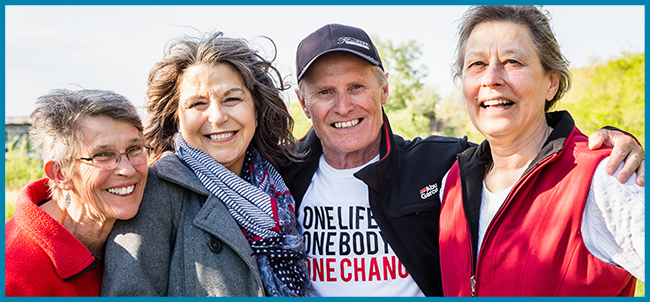About Lung Transplants
For those suffering from severe lung disease, a lung transplant may be their last treatment option to survive. A lung transplant can offer hope, but it can be a complex process that is comes with health risks. A lung transplant also comes with health risks and it is a lifelong commitment as you will need medication and treatment for the rest of your life.
What is a lung transplant?
When you have a lung transplant, your diseased or damaged lung(s) are removed and replaced with a healthy lung that is donated from another body (donor lung). One or both lungs can be replaced.
Who qualifies for a lung transplant?
There is a list of criteria that identifies who can have a lung transplant. In order to qualify for surgery, you will need to be evaluated by transplant health care professionals. This specialized team of medical staff will inquire about medical problems, complete several medical tests and screen for various cancers before recommending lung transplant.
If you are a suitable candidate for a lung transplant, you will be asked to attend a physiotherapy program and sometime during this program you will be added to the lung transplantation wait list. This program is done at your transplant center which may not be where you live. This may require you and a support person to travel and find accommodations.
Why do I need a support person?
Everyone who is on the transplant list will need to have a support person. A lung transplant is a major surgery that affects all parts of your life, not just your body. The entire process of a lung transplant can be very stressful and is usually full of ups and downs. Your support person should be someone you can talk to and someone that can help you stay positive. They will also need to help you get to appointments, get groceries, do the laundry, and assist with personal care before and after the surgery.
A support person should be okay with spending lots of time in hospitals as they will be accompanying you to tests, appointments and with you during your recovery.
How long does it take to recover from a lung transplant?
Recovery from a lung transplant will vary for everyone. Most people who have a lung transplant are in the Intensive Care Unit (ICU) in the hospital for a few days to a week. Usually they then remain in the hospital for three or more weeks after that. After being released from the hospital, you will have to remain near the transplant center for at least two more months (a minimum three months total from the time of surgery).
What are the most common medical problems people face after a lung transplant?
The most common medical problems people face after a lung transplant are rejection, infection, and an increased risk of skin cancer and other cancers.
What is the survival rate?
The survival rates for a lung transplant will vary for everyone. This depends on rejections, infections, side effects, age and other medical conditions. The survival rate and success of transplants continues to improve.





